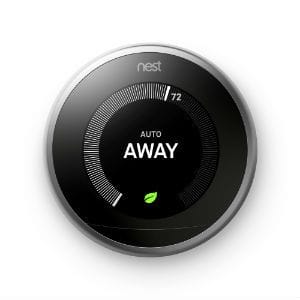COVID-19: August 2020
As of August 18th, 2020 the State of Michigan is still under regulation by several executive orders from Governor Gretchen Whitmer. Some of those orders restrict the gathering of groups as well as encouraging physical distancing measures. At Home Inspection Professionals, we take every precaution to ensure the safety of our inspectors as well as the client, agents and home owners that we encounter daily.
We are currently working under our standard inspection schedule, but encourage you to book early as appointments are filling quickly and days in advance. You can reach us at (586) 443-5042 or (877) HIP-3200 to schedule your appointments or schedule online at HomeInspectionProfessionals.com
Our inspection team will respect the current Executive Orders and the social distancing guidelines from the CDC. Here’s what we’re doing to put health and safety first:
- Frequent Hand Washing: multiple times during the inspection, especially after touching things like faucets and door handles.
- Bring hand towels or paper towels for drying our hands.
- If available, we’ll keep hand sanitizer nearby and use it when needed.
- If available, use disinfectant wipes or the equivalent on faucets and door handles.
- We will avoid touching our faces.
- Inspectors will wear a mask during the inspection.
- If any of our inspectors have a fever, cough, or other signs of illness, they will remove themselves from the schedule and your inspection will either be assigned to another team member or rescheduled with proper notice.
-
We will also ask that our clients do not touch anything in the home, and if they are showing any signs of illness, request that they not attend.
We realize that this situation is changing daily and we will continue to keep the best practices in place and follow the recommendations of the health care professionals to protect everyone involved in the inspection process.
Here at HIP we’re embracing technology that allows us to prepare our inspections onsite including all photos and adding video where necessary to the reports. Our reports are available online instantly and are fully interactive. As always, we’re here to answer your questions after you’ve reviewed your report. We’ve implemented procedures to create an inspection process that is a touch-free as possible.
At Home Inspection Professionals we’re doing our best to provide service as needed for our clients and agents as well as respect our responsibilities as a business in adhering to the Executive Orders and CDC Recommendations. If you have questions on how our inspection process has changed or would like to schedule an appointment, please feel free to call the office at (586) 443-5042 for more details.

 The last few weeks have brought us news we certainly didn’t expect and unprecedented actions with regard to public health and safety. At Home Inspection Professionals, we are committed to the safety of our clients, our staff and ultimately the homes that we inspect and all those that may live there. Here’s what we’re doing to put health and safety first:
The last few weeks have brought us news we certainly didn’t expect and unprecedented actions with regard to public health and safety. At Home Inspection Professionals, we are committed to the safety of our clients, our staff and ultimately the homes that we inspect and all those that may live there. Here’s what we’re doing to put health and safety first:
 We’ve all heard the stories and speculation about Detroit’s comeback. We’ve seen progress and the activities downtown. Now the residential landscape is starting to buzz. Recently, the Detroit Free Press released
We’ve all heard the stories and speculation about Detroit’s comeback. We’ve seen progress and the activities downtown. Now the residential landscape is starting to buzz. Recently, the Detroit Free Press released  Longer, warmer days, the sounds of birds chirping, the hint of green grass – all signs that spring has sprung. If you’re a regular on our blog, you know that Spring Maintenance includes a trip to the roof to give it a once over for any winter damage and overall condition.
Longer, warmer days, the sounds of birds chirping, the hint of green grass – all signs that spring has sprung. If you’re a regular on our blog, you know that Spring Maintenance includes a trip to the roof to give it a once over for any winter damage and overall condition.